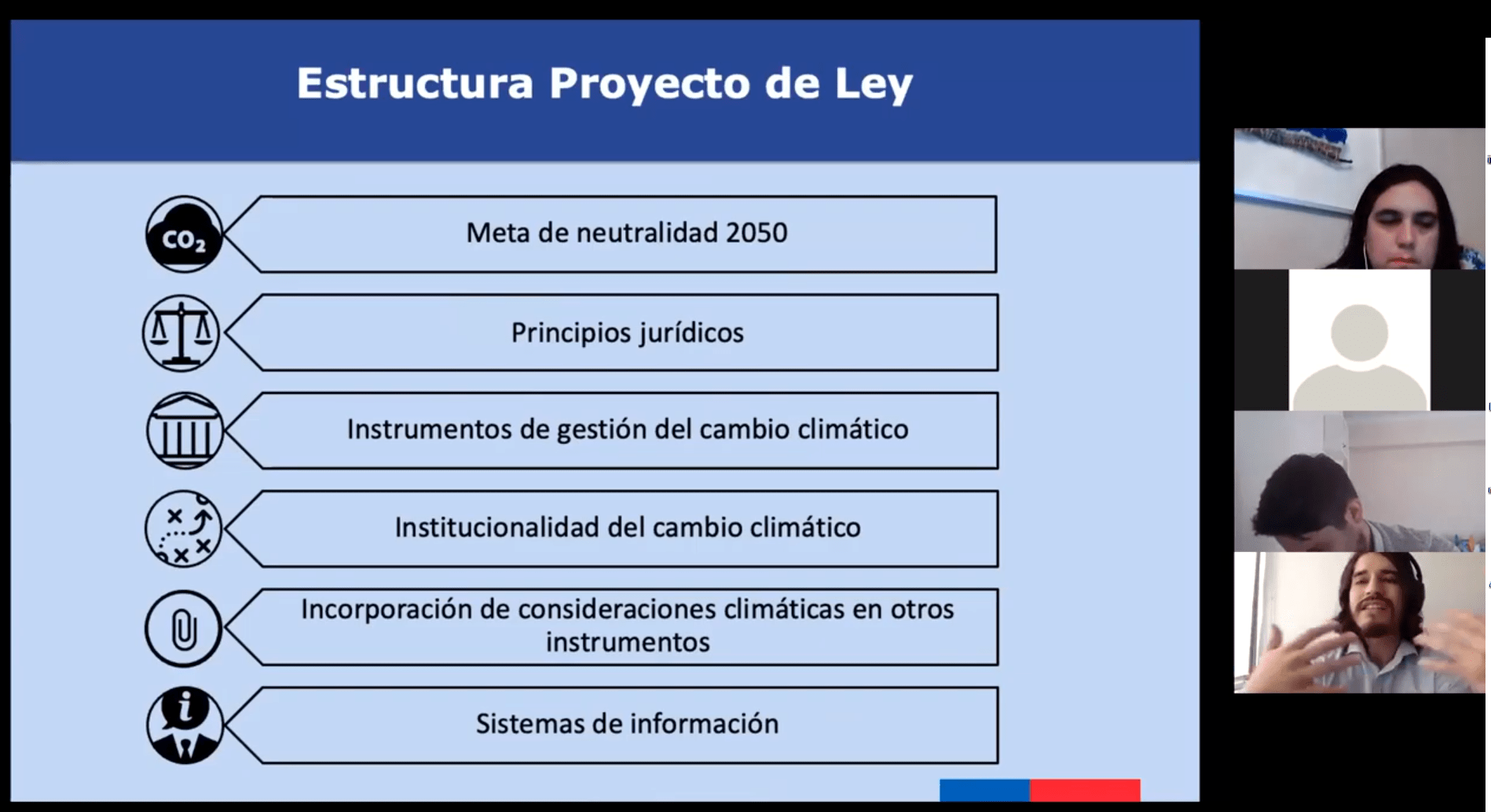A meeting was held between members of the public administrations of Chile and Panama to share their experiences in the process of drafting their respective Climate Change laws.
Santiago de Chile, January 25, 2021.- In the framework of the initiative “Formulation of the draft Climate Change Law and updating of the Climate Change Policy” supported by EUROCLIMA+ through FIIAPP, a meeting has been held between public representatives of Chile and Panama, with the aim of establishing a space for exchange between the teams and the governing institutions of both countries, in order to analyse and share national legislative processes and to provide feedback on the lessons learned in each case.
Achieving the goal of net zero emissions by the end of this century is technically and economically feasible, but it is critical to have the right policy and regulatory frameworks urgently. Climate change regulatory frameworks can help maintain continuity in climate change policies and are key to enabling their implementation.
While there are different ways of managing climate policies (adopting laws, issuing executive government decisions, etc.), turning policies into laws overseen by parliament reduces the possibility that they can be reversed, focuses political discussions on their implementation and gives a mandate to legislators to make progress on action (Duwe et al., 2017).
In the process of moving towards the integration of national emission reduction targets integrated into countries' national legislations and giving national support to the NDC, Chile prepared the Draft Climate Change Framework Law in 2019, presented it to the Chamber of Deputies in January 2020, and it is currently in the constitutional process.
For its part, Panama has set out to develop its regulatory framework and strengthen existing climate change policies in the country. It is currently working on the formulation of the draft Framework Law on Climate Change and on updating the National Climate Change Policy to 2050, with support from the EUROCLIMA+ programme.
The meeting highlighted the intense work on institutionalisation and planning for climate change, with special emphasis on the need to involve local actors, the private sector, and different levels of government in these legislative design processes. The participants also pointed to the importance of having long-term climate strategies to ensure the continuity of actions in a broader policy framework.
From Panama, it was pointed out that the country is in a good political moment to begin the process of co-construction of the draft Framework Law on Climate Change, given the interest shown by different government ministries, beyond the Ministry of the Environment. This is largely due to the awareness raised by the damage caused to the private sector by the latest hurricanes to hit the country.
Representatives of the Ministries of both countries participated in the meeting. From Chile, among others, we had the presentation of Andrés Troncoso, from the Legal Division of the Department of Legislation and Environmental Regulation of the Ministry of Environment, Felipe Díaz, from the Climate Change Office, and Karen Lavoz, from the Office of Access to Citizen Information and Citizen Participation. On behalf of Panama, Ligia Castro, Director of Climate Change at MiAmbiente, Israel Torres, from the Adaptation and Resilience Institute, Ana Domínguez, from the Climate Change Directorate’s Mitigation Department, and Mari Castillo and Ana Moreno from the Climate Action Department, among others.
About EUROCLIMA+
EUROCLIMA+ is an EU-funded programme to promote environmentally sustainable and climate-resilient development in 18 Latin American countries, particularly for the benefit of the most vulnerable populations. The Programme is implemented under the synergistic work of seven agencies: the Spanish Agency for International Cooperation for Development (AECID), the French Development Agency (AFD), the Economic Commission for Latin America and the Caribbean (ECLAC), the German Society for International Cooperation (GIZ), Expertise France (EF), the International and Ibero-American Foundation for Administration and Public Policy (FIIAPP), and UN Environment.
